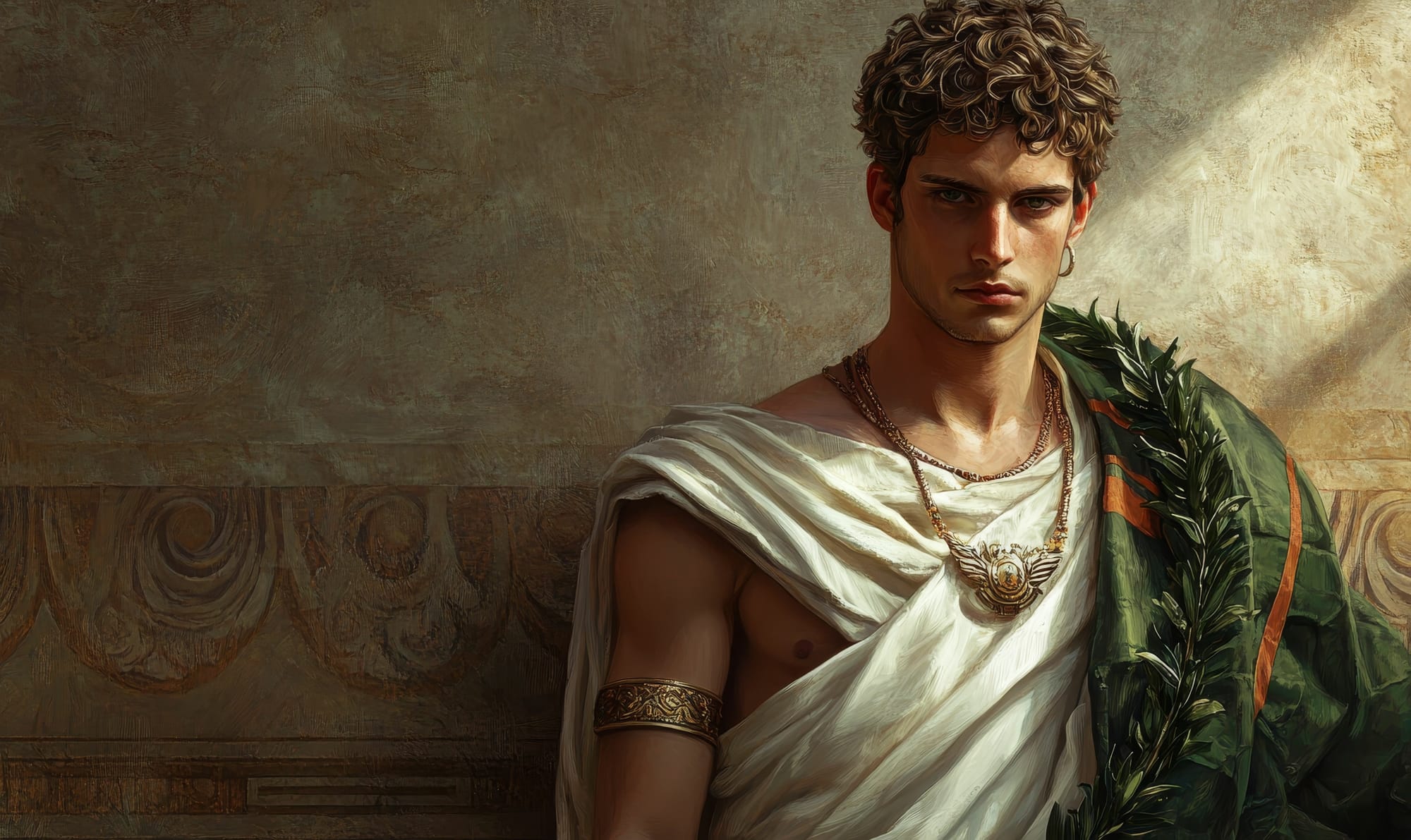100 Heroes: Patroclus
The gay man at the centre of the history of Ancient Greece.

In Greek mythology, as recorded in Homer’s Iliad, Patroclus was a close wartime companion of Achilles.
Patroclus was the son of Menoetius, the son of Actor, King of Opus and - through his grandmother, Aegina - Achilles’ first cousin once-removed.
Early days
According to the mythology, Patroclus was banished by his father when he killed a young boy while play-fighting.
Menoetius sent his son to live with Peleus, the father of Achilles. Peleus effectively adopted Patroclus and raised him as his own.
Patroclus was a few years older than Achilles and they grew up together - Achilles idolised the older boy.
Trojan War
According to the Iliad, when the tide of the Trojan War had turned against the Greeks and the Trojans were threatening their ships, Patroclus convinced Achilles to let him lead the Myrmidons into combat. The Myrmidons were the troops commanded by Achilles.
At this time, Achilles was refusing to fight because he was feuding with Agamemnon - the commander of the Greek forces.
Patroclus wore the distinctive armour of Achilles, so that he could assume command of the men.
It was agreed that once Patroclus had successfully pushed back the Trojans and protected the Greek fleet, he and the men would return to Achilles who remained at their encampment - where they shared a tent. However, in the heat of battle, Patroclus pursued the Trojans back to the gates of Troy.
As the Myrmidons drew closer to Troy, they were engaged by defending troops led by Hector - the prince of Troy. Hector seized the opportunity to attack the leader of the Myrmidons - who he assumed was Achilles.
In the fighting, Hector killed Patroclus - stabbing him in the stomach with a spear - and removed his armour as a battle trophy.
Achilles was grief-stricken by the death of Patroclus. A profound grief that turned to rage and propelled him back to the battlefield. His sole aim in battle was to avenge Patroclus by killing Hector. After killing Hector, Achilles dragged the prince's body behind his chariot.
Relationship with Achilles
In the Iliad, the relationships between Achilles and Patroclus is described as "deep and meaningful". As the story was retold, the two men were increasingly described as lovers - particularly in the works of Aeschylus, Aeschines and Plato.
The relationship between Achilles and Patroclus is often described as being between an eromenos - a youth in transition to adulthood - and an erastes - an older male who had recently come of age. Patroclus was the older of the two.
The story of Achilles and Patroclus has echoed throughout the ages. For example, it is recorded that Alexander the Great modelled himself after Achilles, and described his lover Hephaestion as his Patroclus.